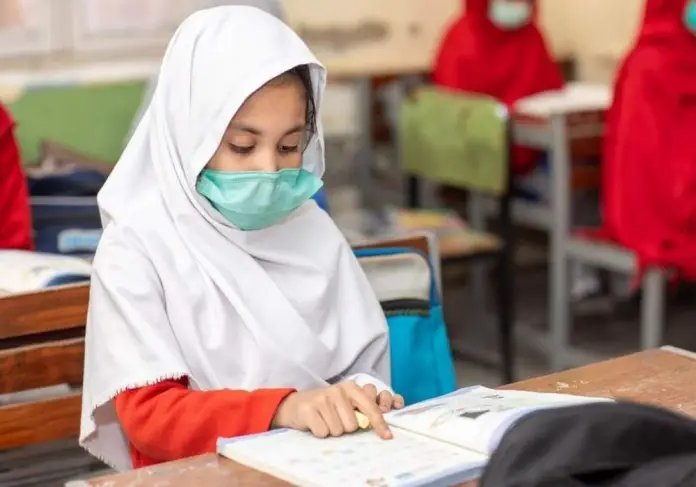Education is the source that changes the status quo and brings desirable results in people’s future. Surprisingly, our education system is haunted by many poor mechanisms. The Constitution of 1973 confers the fundamental right of education on every citizen, and to seek education as the basic right.
Article 25 (A) states: “Right to education – The state shall provide free and compulsory education to all children of the age of five to sixteen years in such manner as may be determined by law.” Article 37(b) states: “…remove illiteracy and provide free and compulsory secondary education within minimum possible period.”
However, it is sad that primary education is the right of every citizen but higher education is a privilege. It is shocking that 46 percent of the population makes it to the primary education system and only 4 percent gets a chance to have higher education.
According to the United Nations Children’s fund (UNICEF) report, there are approximately 22.8 million out-of-school children in Pakistan. Not surprisingly, this ratio is higher in rural areas than in the urban areas.
Education is the centrepiece of a country’s economic boost and progressive social infrastructure. An ideal life shall be possible when quality and higher education are available to all.
Unfortunately, our education policy is failing to impart useful knowledge. Primary education is an essential stage of a child’s life, but the real education is higher education that is expensive and out of the reach of most of the people. That is the main reason why parents do not allow their children to seek higher education. It is expensive, and thus becomes a luxury and not a basic right of a young person belonging to the underprivileged class of society. It is a privilege that is inaccessible to the poor people. Government must take positive measures to make higher education easily available for the indigent and hardworking people.
Countries with durable policies for education excel in every sphere of life. For instance, Finland has the literacy rate of 99.2 percent with the population of 5.53 million. China, our all-weather friend, also stands exceptional in educating its people. The literacy rate in China was said to be 79 percent in 1982, which has improved with the right decisions and tangible policies of China’s government. Presently, China has the literacy rate of 97 percent. It indicates that almost one million people per year became literate over three decades. Germany and the UK has the literacy rate of 99.0 percent. These countries do not only prosper economically but also in social and political well-being of their people.
On the other side, the countries with the lowest literacy rates in the world stand in the shadow of ignorance and backwardness. They not only suffer economically but also in the sociopolitical sectors. Their day-to-day affairs are haunted with innumerable problems.
Pakistan’s literacy rate stands at 59.13 percent after more than seven decades of being in existence. Among our neighbours, India is at 74.37 percent and Bangladesh is at 74.68 percent literacy rate. Before the separation of East Pakistan in 1971, the literacy rate of Bangladesh was 21.5 percent of the population; 16.7% of the population including children aged 5 and above were literate.
A large segment of the population of the countries with low literacy rates lives under extreme poverty. Corruption and weak sociopolitical infrastructures become the fate of these countries. The quality of life is at stake. Every day is hard and miserable. Everyone aspires for an ideal life, and that shall only be possible with 100 percent literacy rate.
Countries with the best education policies always stand in the leading position. They steer their governance to excel in terms of education, economic competitiveness, civil liberties, quality of life, and human development. All these attributes are visible in countries that prioritise education as a right and not a privilege.







